"In Alireza Firouzja I see a young Anand" - GM Ivan Sokolov
Ivan Sokolov is a well known Dutch Grandmaster and coach. In the last two years, he has been working with the Iranian team and has helped develop young Iranian talents. In this interview with IM Sagar Shah, GM Sokolov talks about the country's chess potential, the rise of young talents -- especially, those of Alireza Firouzja, Amin Tabatabaei and Parham Maghsoodloo -- and the reasons for their success. He also tells about their struggles due to economic difficulties and the sanctions against Iran and compares them to other strong players from the west, India and China.
GM Ivan Sokolov on Alireza, Maghsoodloo and Tabatabaei
Since a few months, three Iranian talents have drawn the attention of the chess world - Parham Maghsoodloo, Alireza Firouzja and Amin Tabatabaei. I saw Alireza and Amin at the World Youth Olympiad 2017 in Ahmedabad and both of them were very impressive. Parham on the other hand I saw for the first time in action at the World Juniors 2018, but I was following his results and tremendously impressed by them. Parham is 18 years and 1 month old and already knocking on the doors of 2700 (mind you he is already gaining 19 Elo points at the World Juniors 2018), Alireza is just 15 years and 3 months old and is almost 2600 and Amin Tabatabaei who is 17 years old is also close to 2600. These are the statistics:
| Name | Date of birth | Elo rating |
| Parham Maghsoodloo | 11th August 2000 | 2649 |
| Alireza Firouzja | 18th June 2003 | 2582 |
| Amin Tabatabaei | 5th February 2001 | 2576 |
These three youngsters are not just talents, they are the best players of Iran and recently helped Iran win the Asian Nations Cup 2018 ahead of the strong Indian and Chinese team. They will also represent their country at the Batumi Olympiad and at the World Juniors that is currently going on, all of them are fighting for the top spots. There is definitely something extremely special in them. When I saw GM Ivan Sokolov at the venue of the World Junior Championship 2018, I knew that I had to ask him for a few minutes to talk about his stint as the coach of the Iranian team from 2016-2018. Sokolov was the coach of the team when they won the Asian Nations Cup. He has been working with them for two years and knows everything about their styles, the reason for the meteoric rise and current state of chess in Iran. I went up to Sokolov and he obliged. Below is the transcription of the 20-minute interview I did with Ivan:
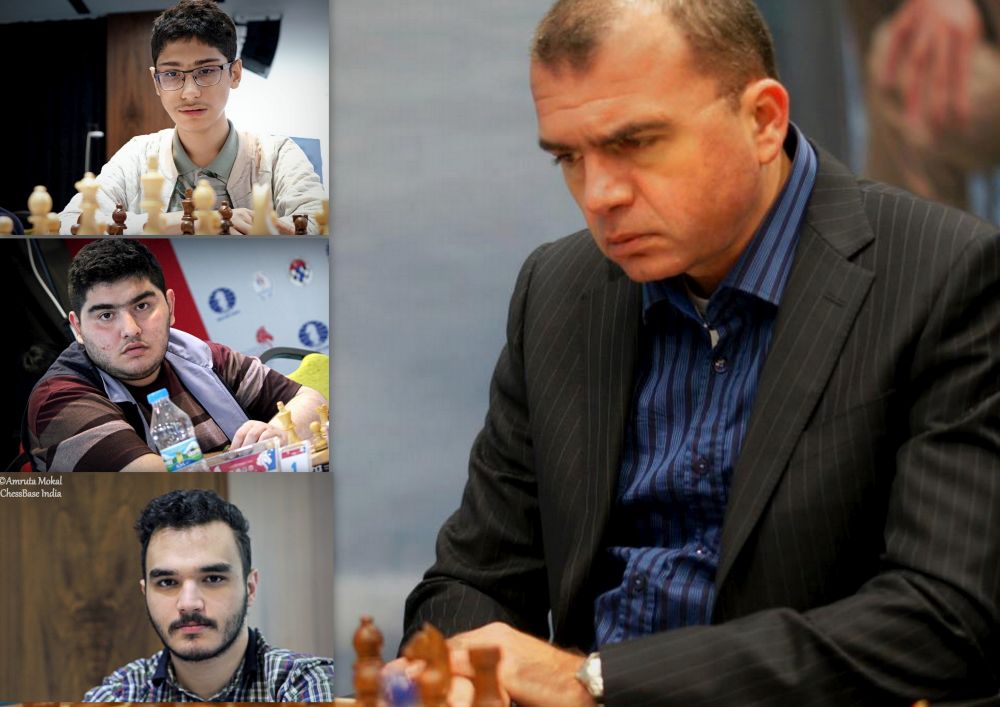
SS: I wanted to talk to you about your involvement with the Iranian team. How long have you coached the Iranian team?
IS: I began coaching the Iranian team in the summer of 2016. We had our first training session just before the Olympiad. Then, I went with them to the Olympiad in Baku and then it continued. I would travel to Iran for a couple of weeks every few months. Even when I wasn’t in Iran, I would keep in touch with the players and train them over the internet – sometimes by sharing PGN files, sometimes over Skype. It has been like this since August 2016.
SS: So you can say you have been training them for about two years?
IS: Yes, it has been roughly two years.
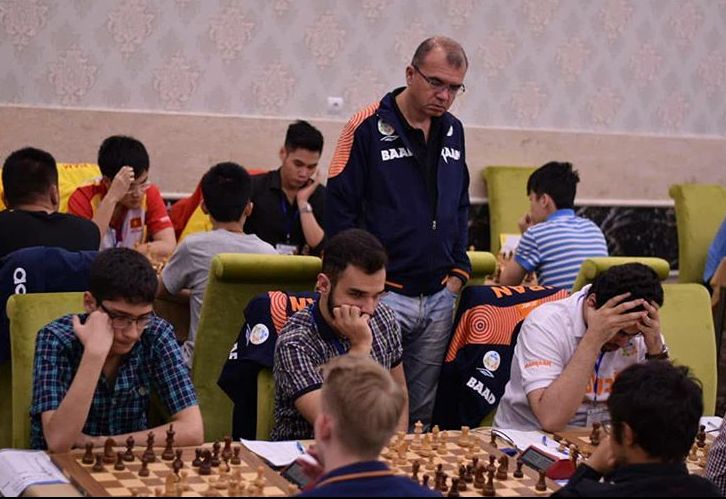
SS: And what’s the status now? Has it ended?
IS: No, it hasn’t ended. It’s just that they had a few things to sort out. Due to the country’s economic situation, it wasn’t clear on how they were going to send a team to the Olympiad, what their preparation was going to be or what their budget was. At that time it was not even clear if the Asian Teams will take place in Iran. By the time they had everything sorted out and cleared, I had already accepted the job to be a commentator at the Olympiad.
SS: So when you started in 2016, what did you see in the team and what was your main focus on?
IS: Well, it was clear to me that they had great potential. I did, at the time, speak to the federation’s President and told him that they’ve got extremely talented boys but what they don’t realize is that in Alireza Firouzja, they have world champion material.
I also told them that this world championship material will not remain forever. So I suggested them to ask the government for some special sponsorships like Giri got in the Netherlands or some United States guys got during the Sinquefield Cup and I think even MVL got something like this in France. Their moment is now, because age always matters. If they let this moment pass, they would miss their chance. He will not be able to achieve what he potentially can.
So far, not much has happened with regard to this proposal. He has training sessions with me just like everyone else. Also when it comes to tournament support, it’s just the same for him like the other boys – not more, not less.
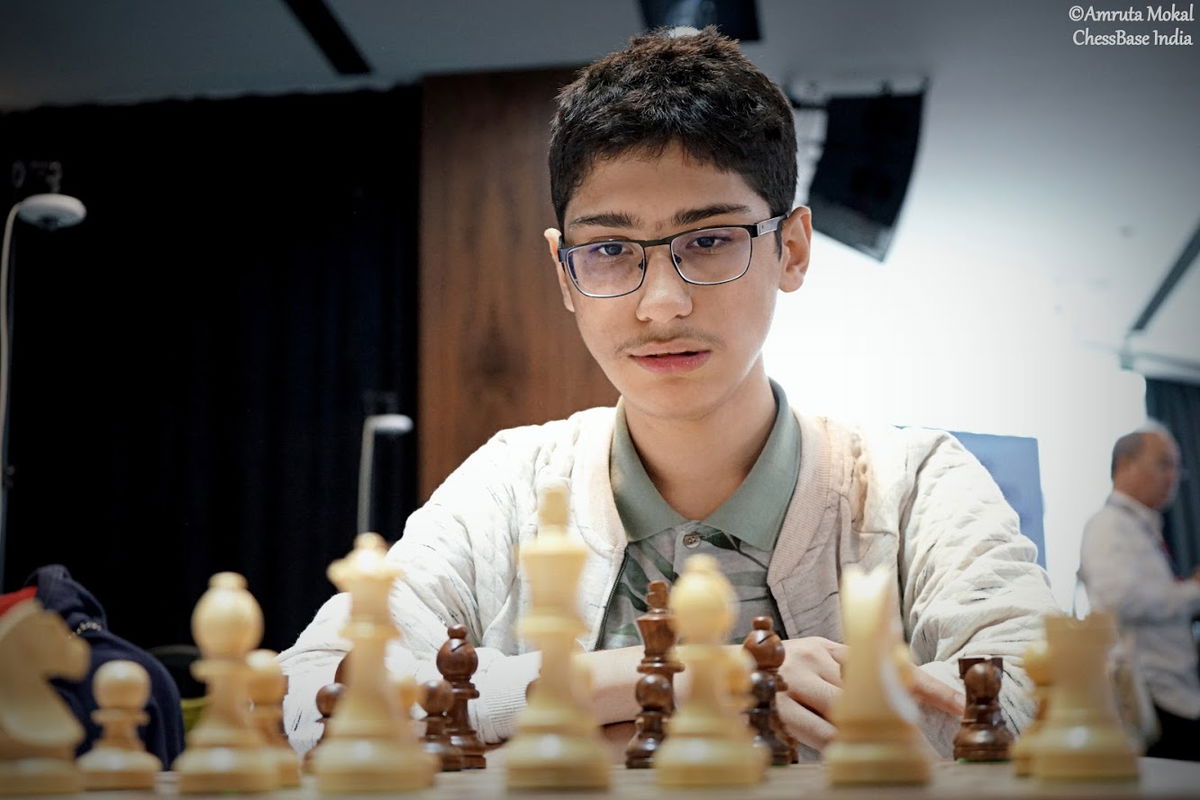
SS: But why do you think Firouzja is world championship material? What did you see in him?
IS: I saw young Anand. I and Anand are from the same generation and I can tell that Firouzja has incredible similarities to Anand when he was young.
SS: In what sense?
IS: In the sense that he thinks extremely fast and sometimes that becomes a drawback for him, just like it was in Anand’s case. In those years, Anand was also suffering from this. Sometimes, he would take a decision too quickly but it was obvious to every one of us from this generation that Anand had something which we didn’t.
In the case of Firouzja, I think he has something special in him when it comes to chess. And given his young age, he has the potential to become a world champion. And other players will become very strong players but that is not exactly the same.
SS: But you don’t see him playing as fast as Anand used to. He takes his time, he is calm…
IS: Oh, you’ve never analyzed with him. Trust me, at one point I told him I would cut both of your hands. (laughs)
SS: So he would just make the moves as soon as he saw them?
IS: Yeah, the connection between his brain and his hand is kind of instant.
SS: But when you give them a tough position or something, does it ever happen that Alireza comes up with the solution in a flash while the other boys struggle?
IS: Sometimes, not always. Sometimes, he thinks too fast about a problem. I often ask him, ‘If you really think the solution was a two-move combination, do you really believe I would have put that position in front of you?” And sometimes, he is satisfied with the solution too quickly. But this is just the process of maturing as a player.
SS: This is what you worked on.
IS: Yes. But he has to take advantage – actually the entire Iranian Chess Federation has to take advantage – of the moment, of his age. This is, I think, his biggest advantage over Parham (Maghsoodloo). He is simply young; this is the reality.
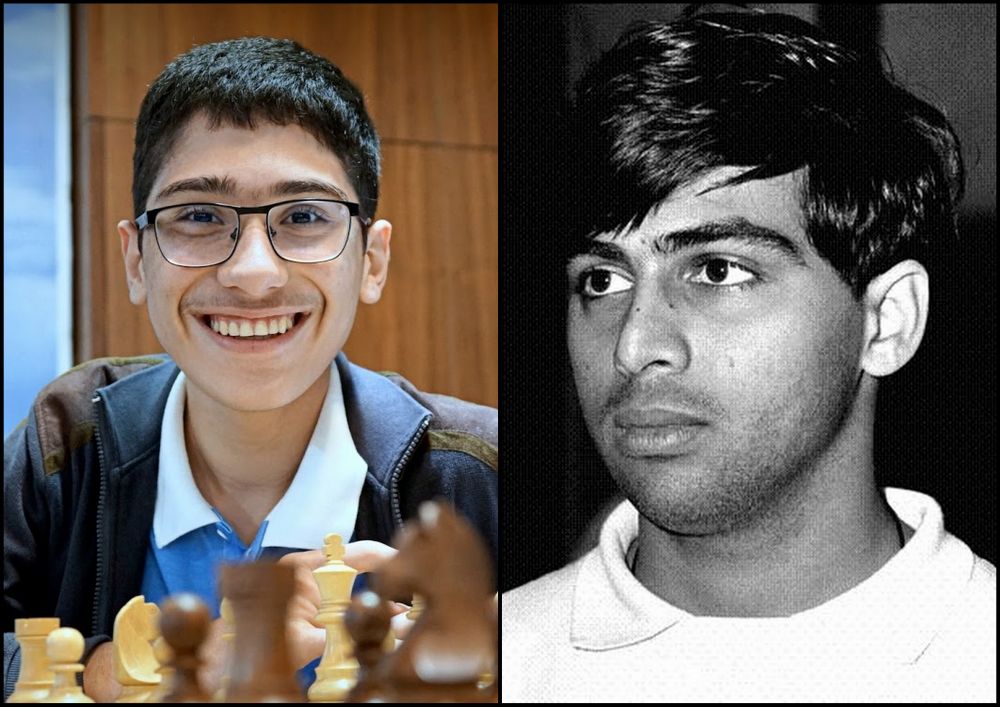
SS: But Parham is only three years older. Do three years make that big of a difference?
IS: I think three years make a lot more difference these days in comparison to my time. People acquire knowledge quicker, they have computers, information travels fast. I think three years is a lot of time.
SS: But the way Parham is playing here (at the World Juniors 2018), you can say he is not the most accurate player but he is a true fighter. Something like a street fighter, never afraid to take someone on!
IS: When I met Parham for the first time in 2016. He was rated around 2400. We had a tournament in Iran where he was playing against some Chinese guy – Lu Shanglei if I am not mistaken – and he had a position where perhaps only a computer can hold a draw; humans would just lose because the position required several accurate moves to be made at several points. And Parham not only managed to hold, but won that game! I thought this guy is going to be something special. While watching him, I was sitting with Dreev and we both looked at each other amazed at what he had done. We both agreed that he is going to make some very fast progress and that is exactly what he did. He also has a very unusual style of playing. It is difficult to put in words.
SS: If you had to put it in words, how would you describe him?
IS: Well, by his playing style and openings, he reminds me a bit of Vaganian, with the difference that Parham calculates much better.
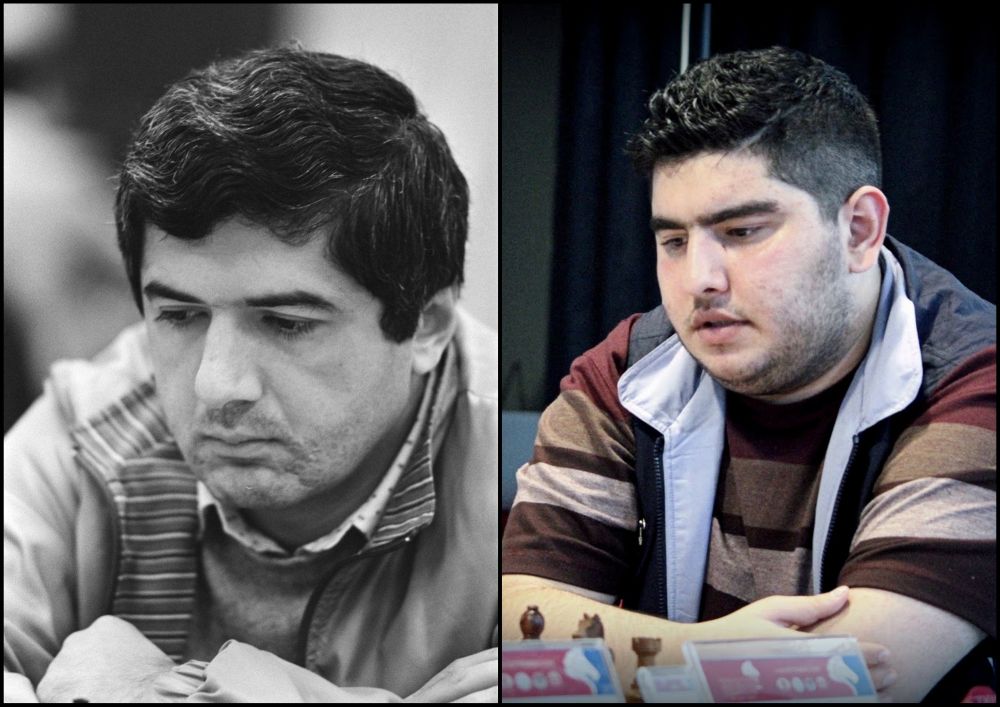
SS: And what about his defensive skills, how has he developed that?
IS: He is very resourceful. Also when he is analyzing different positions, he is very resourceful. Even when he gets a lousy position, he is very good at looking for chances – he just refuses to die. I think this is maybe an innate talent. It is very difficult to learn this.
SS: Do you think it is his situation, maybe the economic situation of the country or his family that provokes this kind of resourcefulness?
IS: Actually, I think so. It may sound illogical but the difficult economic situation in Iran is helping their chess boom. I do think this is the reason we don’t have so many strong players from western Europe. It’s not because they are less talented but because they are not as interested. Why should they be interested when regular life opportunities provide more chances than the slippery roads of becoming a chess player. In this sense, I think you are right. This economic hardship that they have is helping their chess prosper.
SS: And what about Amin Tabatabaei?
IS: He is also very good. Again, he is a bit older than Firouzja. You may say it is only two years but those years are important. He has made great progress. I started working with him before I came to Iran to coach the team. This was in the beginning of 2016. He was rated about 2430 and, in this short period, he has made massive progress. We are going to see more of him, that is for sure.
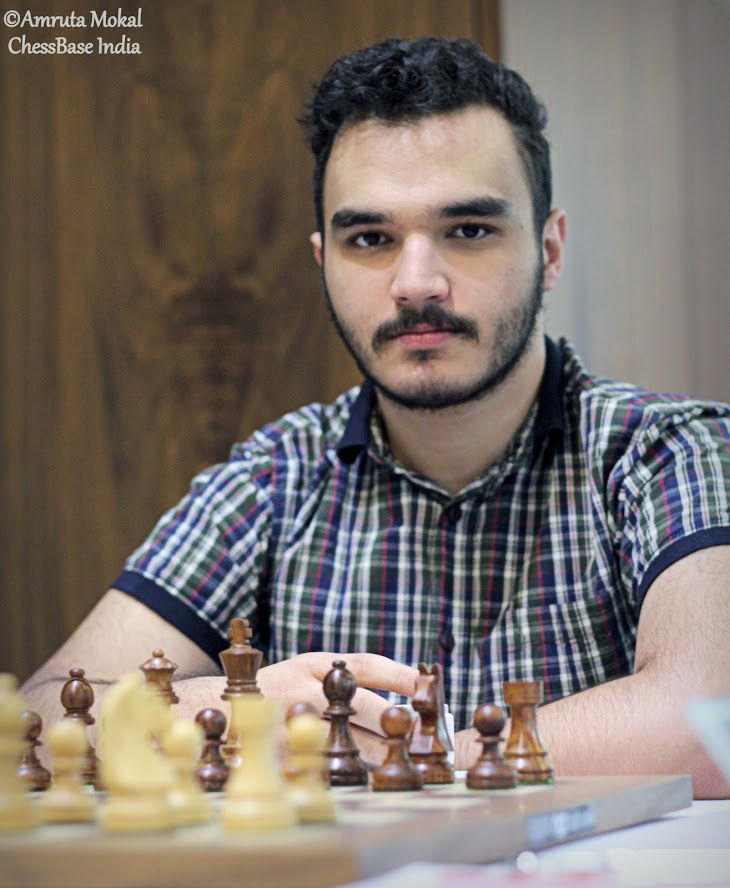
SS: And what do you think is the secret of their confidence? Whenever you see them, they are walking with their chest high and, in comparison to them, the Indians and the Chinese players looked a bit mellowed down.
IS: Yes, this is actually true. Confidence is important. You could see this confidence problem prevented the Indian team from playing well at the Asian Nations Cup 2018. When they had the chance, they couldn’t perform. But after they lost all their chances, the pressure was off them and they began to show their full potential. The biggest problem was that in the important matches, there was such a psychological strain that it was clear that they were under performing due to psychological reasons and not because of their strength.
SS: And they are all immensely strong players.
IS: Yes, and it was very obvious to me that the whole team, when they were playing against Iran, that they were suffering from psychological problems. I even told my players that India might be strong on paper but the entire team is under pressure, be it Sethuraman, Ganguly, Adhiban, Sasikiran… all of them simply under the pressure could not perform up to their ability.
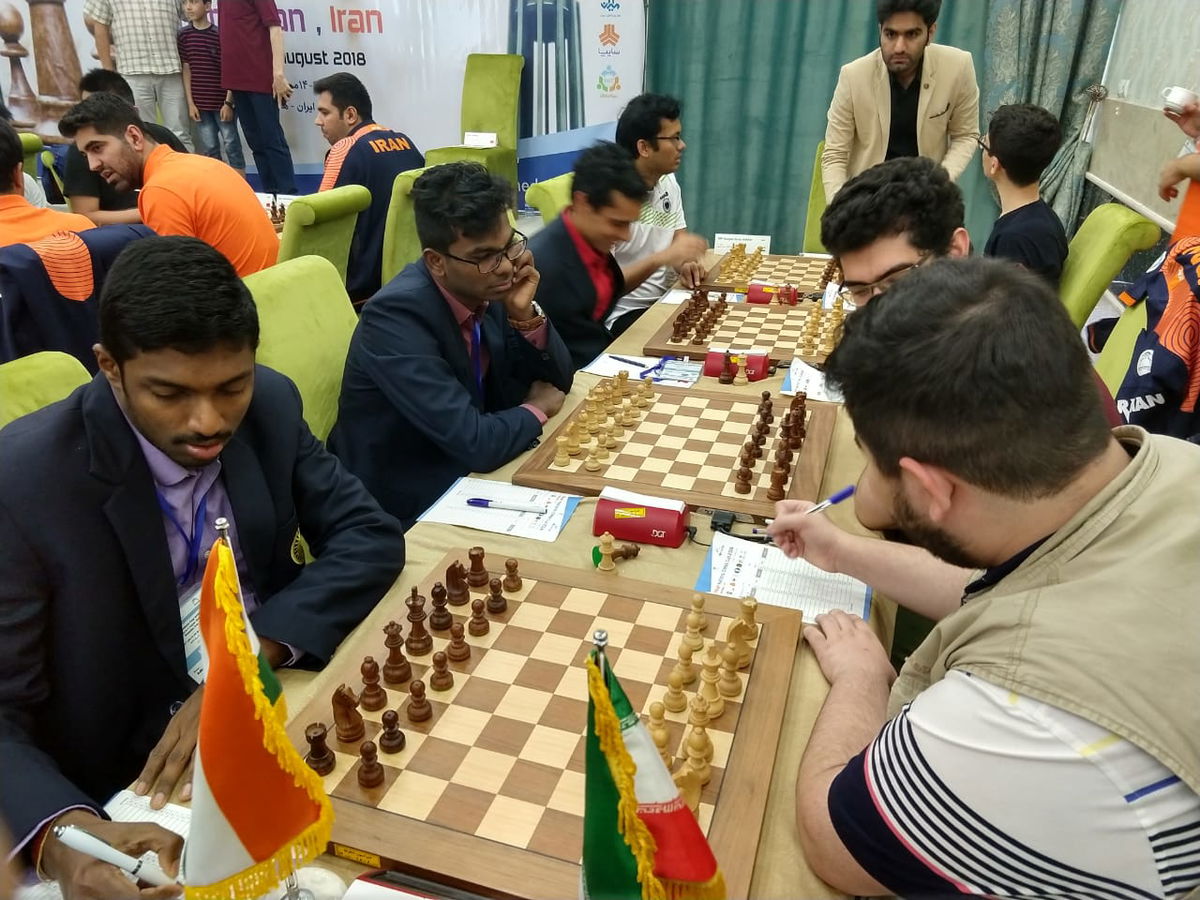
SS: Apart from these three guys – Tabatabaei, Firouzja and Maghsoodloo – is there anyone else who has the capacity to become a very strong player?
IS: Well, unfortunately or fortunately, Shahin (Lorparizangeneh), who is playing here at the moment, has decided to study international law at one of the most difficult universities in Iran. You can see that he is not able to follow up on chess. So, at this moment, I don’t see anyone who is close to the capacity of these three players. They do have a number of good players who are not old but also not very young. So their potential is not the same as these three boys.
At this moment, the three of them are much better than the rest. I even was proposing the federation to prepare three different programs, to simply ask for approvals for three separate programs from the sports ministry for the three of them and then evaluate after one year. That’s because all three of them are very good. I may think that Firouzja is the only one who is world championship material, but I can obviously be wrong. [laughs]
SS: Do you think the government is supporting them enough for them to keep improving?
IS: I think this is good enough, because they are working on their own, but the situation can be better. They were asking me what else they can do and I told them they could play in tournaments where otherwise they would have problems playing, because in Iran they have a big problem converting their Rials into Dollars, if they want to go somewhere. I don’t think any of them even have credit cards. There are a number of practical obstacles in their way.
But next to those practical obstacles, I think, the way for a person to really develop the most of their talent is by hiring different people to learn the best they can. That means you are not going to learn middle game, Najdorf and endgame from Ivan Sokolov. This is not going to work (laughs)! You have to hire a guy who is good at one thing and another guy for another thing. I was even offering to find them the right guys for the right areas. For me, I am good at a few things and just OK at others.
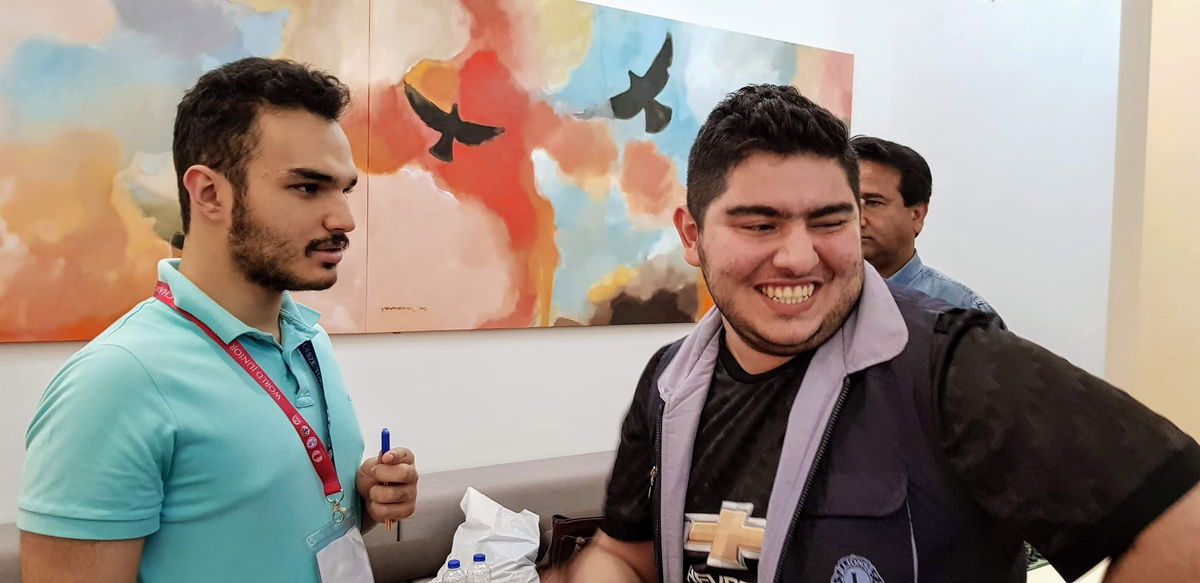
SS: I had asked Parham at the start of the event what he expected to achieve at the Olympiad since he, Tabatabaei and Firouzja are going to be in the team (and of course, two more players). He said they are going to try for a medal. They are seeded 24th in the event. What is your take on this?
IS: Well, they were very enthusiastic after we won the Asian Nations Cup 2018. They said now we won’t take anything less than a medal at the Olympiad. And I said, ‘Unfortunately, boys, your time is going to be in 2020.’ (smiles)
SS: Did you enjoy your time working with them?
IS: Yes, I enjoyed my time very much. Obviously, when you are working with some of the most talented players in the world, you are highly motivated.
SS: Everyone says that the chess boom currently is in India and China but do you also think Iran adds up to the list?
IS: Yes, you can see this. I was actually talking with some Dutch friends yesterday. I don’t know what the situation is in China with the young players. Here (at the World Juniors 2018), we do not see anything special. This is a bit strange because they have a lot of 2700+ players. So what is happening in these younger categories needs to be known. If we see here or in Italy a year ago (at the World Juniors of 2017), there is nothing special coming from China. I don’t know why.
SS: Perhaps they are not sending their best to these tournaments?
IS: Yeah, but why not? I assume they would like to win those championship titles if they can. In the case of India, you can see that there are around two or three people who are around 2600. It’s OK for this age. Even though not all of them will make it to the very top, at least one of them is probably going to come far. With China, I don’t really understand.
SS: You also work with players like let’s say Jorden van Foreest. If you were to compare Jorden with Firouzja or Maghsoodloo – I know there is an age difference – but what would you say?
IS: Maybe it is fair to compare Jorden to Parham (Maghsoodloo) because him and Parham are about the same age. Jorden has different qualities. It’s only been able two months since he has been able to fully focus on chess because he finished school and decided to postpone university for a couple of years. So, he has been fully focusing on chess only since the last two months. How it will go, we will have to see.
If you’re living in a western country you have to do something about your economy. And if your progress is not as fast as you may have hoped, your university break would have to be cut short. So we will have to see.
I think for Jorden, it will be very important to be invited for Wijk Aan Zee-A for his development. I don’t have any clue why he hasn’t already been invited. People like Van Wely, Piket, Stellwagen, Smeets, all of them were invited when they were young and they were worse than Van Foreest is at this moment. Why he was passed over despite being the Dutch champion, I do not have the faintest idea of. I even expressed in the Netherlands that once when a young player plays Wijk Aan Zee - A, he becomes a different player. After two weeks, he is a different player. Perhaps, it just fell on deaf ears. All I could do is express an opinion.

In comparison to Parham, I would say they both have different talents. Van Foreest has a more structured approach to chess. If you check the database, you would find that he is basically trying to develop the openings he plays with black and white in some direction. Parham, on the other hand, is developing his own kind of approach. How do I put is, they are different. They are simply different players.
SS: Ivan, thank you so much for your time and these insights.
IS: It's been a pleasure.
A big thanks to Aditya Pai for transcribing this interview.
Related links:
As a chess journalist, one of my first and best interviews on ChessBase happened with GM Ivan Sokolov. It was the last day of the Al Ain Masters in 2014 and I asked Ivan if he would be kind enough to spare a few minutes for an interview the next day. He agreed for an interview at the breakfast table next day morning. In between the time pressure to catch my flight, and the nervousness of first time interviewing a great player, I think I did a pretty decent job. Check out the interview which was published in two parts in the links given below:
Interview with Ivan Sokolov (1/2)
Interview with Ivan Sokolov (2/2)



